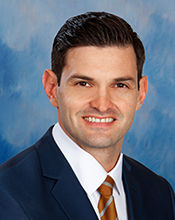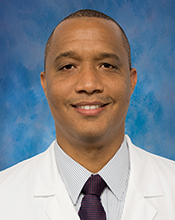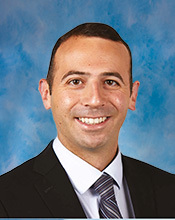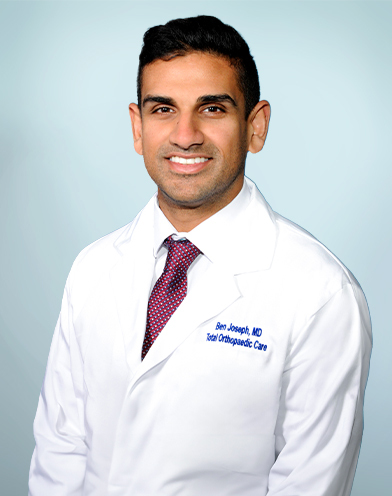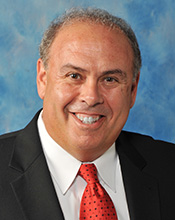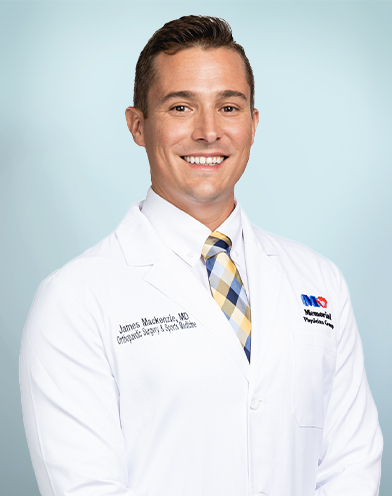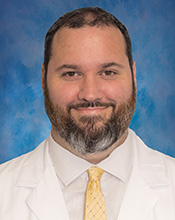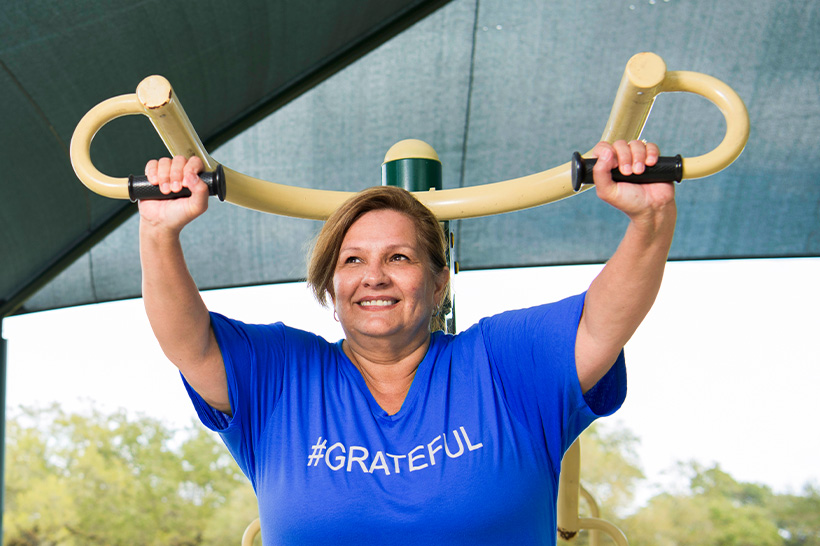
Joint Replacement
We’re Here to Offer You a Way to Ease Your Joint Pain
Because you are meant to move.
At Memorial Joint Replacement Center, we understand how chronic joint pain can interfere and prevent you from enjoying an active lifestyle or simple daily activities. We are dedicated to offering individual treatment based on each patient’s unique health profile and medical needs for a truly customized experience, specifically aimed at achieving the best possible results. We feature:
- Exclusive surgical unit and team dedicated to the entire spectrum of joint replacement
- Exceptional patient- and family-centered care that includes a patient care coordinator and a dedicated orthopedic team
- Expertly trained orthopedic therapy and nursing staff
- Individual and group therapy sessions focused on early mobilization
Our focus is on safety, surgery outcomes and patient satisfaction.
We have created a program that guides you from the moment you make the decision to have surgery to the moment you go back to activities you have been avoiding due to pain.
A gold standard for joint replacement surgery.
Memorial Joint Replacement Center at Memorial Hospital West follows a joint replacement program, which focuses on early mobilization and managing pain. More than 76 percent of the center’s patients are walking continuous distances greater than 300 feet prior to discharge, exceeding the program average.
Explore additional orthopedic services we offer at Memorial Orthopedic Surgery & Sports Medicine Center
Sports Medicine Orthopedic SurgeryTake your first step toward pain-free living by requesting a hip or knee replacement consultation:
Joint Pain Treatment Options
- Anterior Hip Replacement
- Total Hip Replacement
- Minimally Invasive Hip Surgery (Hip Arthroscopy)
- Partial Knee Replacement
- Total Knee Replacement
- Robotic-Assisted Knee Replacement Surgery
Frequently Asked Questions
- Avascular necrosis (osteonecrosis)
- Gouty arthritis
- Hip arthritis
- Hip impingement
- Hip labral tear
- Inflammatory arthritis
- Knee arthritis
- Osteoarthritis
- Osteoporosis
- Psoriatic arthritis
- Rheumatoid arthritis
- Shoulder arthritis
- Trauma
Recovery can vary from person to person, but most patients will usually need to use an ambulation aid, such as a walker, for approximately four to six weeks. Most patients can go home within 48 hours, though some patients, particularly those who live alone, may need to spend a few days at a rehabilitation center or nursing home. Keep in mind that healing and recovery times can vary depending on the type of surgery needed.
Delaying care may have a negative impact on your health over time, so, the sooner you address your joint pain, the better your outcome. Lack of physical activity and changes to your posture due to pain can have serious repercussions that can make recovery harder and generate other problems over time, like weaker body structures due to muscle loss, muscle atrophy, and weight gain–all of which can translate into increased discomfort and pain. Younger patients tend to recover quicker and may have fewer complications.
We understand that controlling pain post-surgery is important for participation and improvement during therapy. Our pain management has proven to work for many patients because we address your pain before surgery with oral and injectable (i.e., nerve block) medications and after surgery with around the clock pain medications, anti-inflammatories, and ice therapy. You'll also have the opportunity to speak about multiple modes of pain management beyond opioids.
All joint replacements can wear out over time. How long a particular implant may last varies from patient to patient and depends on several factors, including the patient’s age, weight, activity level, and implant placement. If you have questions regarding implants, your surgeon will be happy to answer them for you.
With improvements in surgical techniques and post-operative care, many patients will be discharged from the hospital after 24-48 hours. Some patients may leave the same day, if that is the plan with their doctor. Of course, each patient is different, but the goal should be for you to recover in the comfort and privacy of your home as soon as possible.
Physical therapy is an important part of recovery after joint replacement surgery and can play a critical role in ensuring a positive outcome. Post-surgery, you will participate in group physical therapy classes twice a day while in the hospital. After that, you will need outpatient rehabilitation or home rehabilitation depending on your needs.
Take your first step toward pain-free living by requesting a hip or knee replacement consultation:
Request a ConsultationExplore additional orthopedic services we offer at Memorial Orthopedic Surgery & Sports Medicine Center
Sports Medicine Orthopedic SurgeryAt 70 years old and pain free, Richard’s back to his active lifestyle and playing pickleball. “I’m right on target for where I want to be.”







